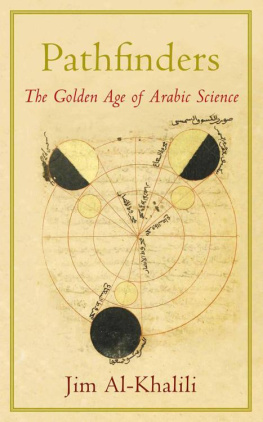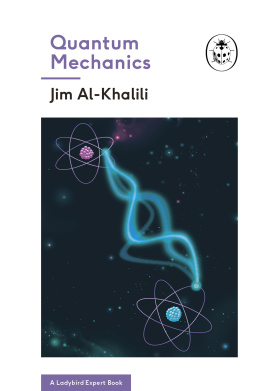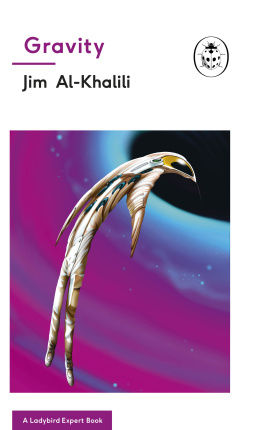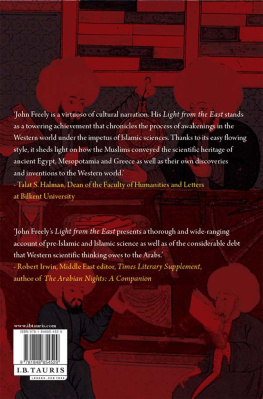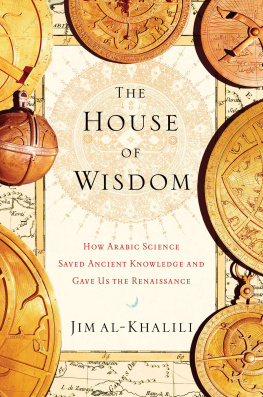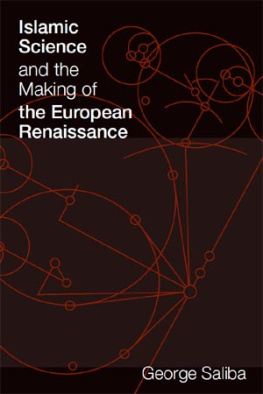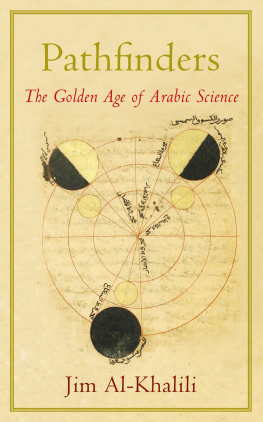Table of Contents
THE PENGUIN PRESS
Published by the Penguin Group
Penguin Group (USA) Inc., 375 Hudson Street, New York, New York 10014, U.S.A.
Penguin Group (Canada), 90 Eglinton Avenue East, Suite 700, Toronto, Ontario, Canada M4P 2Y3
(a division of Pearson Penguin Canada Inc.) Penguin Books Ltd, 80 Strand, London WC2R oRL, England
Penguin Ireland, 25 St. Stephens Green, Dublin 2, Ireland (a division of Penguin Books Ltd) Penguin Books
Australia Ltd, 250 Camberwell Road, Camberwell, Victoria 3124, Australia (a division of Pearson
Australia Group Pty Ltd) Penguin Books India Pvt Ltd, 11 Community Centre, Panchsheel Park,
New Delhi-110 017, India Penguin Group (NZ), 67 Apollo Drive, Rosedale, North Shore 0632,
New Zealand (a division of Pearson New Zealand Ltd) Penguin Books (South Africa) (Pty) Ltd,
24 Sturdee Avenue, Rosebank, Johannesburg 2196, South Africa
Penguin Books Ltd, Registered Offices:
80 Strand, London WC2R oRL, England
Copyright Jim al-Khalili, 2010
All rights reserved
Illustration credits appear on pages xi-xii.
Library of Congress Cataloging-in-Publication Data
al-Khalili, Jim.
The house of wisdom : how Arabic science saved ancient knowledge and gave us the Renaissance / Jim al-Khalili.
p. cm.
Includes bibliographical references and index.
eISBN : 978-1-101-47623-9
1. ScienceArab countriesHistory. 2. SciencePhilosophyHistory. 3. Science, Medieval. 4. ScienceMethodologyHistory. 5. Arab countriesIntellectual lifeHistory. 6. Science, Renaissance. I. Title.
Q127.A5A4 2011
509.1767dc22 2010053136
Without limiting the rights under copyright reserved above, no part of this publication may be reproduced, stored in or introduced into a retrieval system, or transmitted, in any form or by any means (electronic, mechanical, photocopying, recording or otherwise), without the prior written permission of both the copyright owner and the above publisher of this book.
The scanning, uploading, and distribution of this book via the Internet or via any other means without the permission of the publisher is illegal and punishable by law. Please purchase only authorized electronic editions and do not participate in or encourage electronic piracy of copyrightable materials. Your support of the authors rights is appreciated.
http://us.penguingroup.com
To Julie
He who finds a new path is a path finder, even if the trail has to be found again by others; and he who walks far ahead of his contemporaries is a leader, even though centuries pass before he is recognized as such.
Nathaniel Schmidt, Ibn Khaldn
List of Plates
1. Abbasid Caliph Harn al-Rashd and King Charlemagne, oil painting by Julius Koeckert (1827-1918). (Maximilianeum Foundation, Munich)
2. Hrn al-Rashd and the barber in a Turkish bath, fifteenth-century oil painting. (British Library, London, UK/ British Library Board. All Rights Reserved/The Bridgeman Art Library)
3. The ruins of the eighth-century Abbsid Palace of Ukhaidhir, south of Baghdad. (alimdi.net/photographersdirect.com)
4. The spiral cone minaret of the Smarra mosque. (Thomas J. Abercrombie/Getty Images)
5. The ruins of the tenth-century palace-city complex Medinat al-Zahr, outside Crdoba. (Medjai)
6. Description of the eye in Hunayn ibn Ishqs Ten Treaties on the Eye. (The Art Archive/Kharbine-Tapabor/Boistesselin)
7. Brass astrolabe from Saragossa (c. 1079-80). (Germanisches Nationalmuseum, Nuremberg (Nuernberg), Germany/The Bridgeman Art Library)
8. A trickster in eleventh-century Baghdad; thirteenth-century painting. (Institute of Oriental Studies, St Petersburg, Russia/ The Bridgeman Art Library)
9. Page from the Canon of Medicine by Ibn Sna. (Wellcome Library, London)
10. Medieval Muslim surgical instruments, from Kitab al-Tasrf.
11. Eleventh-century Balkhi-style map of northern Iraq. (The Art Archive/National Library Cairo/Gianni Dagli Orti)
12. Al-Idrsis twelfth-century map of the world.
13. Copernicus heliocentric universe. (Mansell/Getty Images)
14. Ptolemys geocentric universe as it appears in the Almagest.
15. Diagram of a solar eclipse, from an eleventh-century manuscript of al-Karkhi. (The Art Archive/Kharbine-Tapabor/Photo Boistesselin)
16. A map from the Book of Routes and Provinces.
17. Ibn al-Shtirs sundial, Umayyad Mosque, Damascus. (Billbl)
18. The Ban Msa brothers self-trimming lamp. (The Art Archive/ National Library Cairo/Gianni Dagli Orti)
19. The Elephant Clock of al-Jazari.
20. The inner workings of the Elephant Clock.
21. Diagram of a system for pumping water into a basin, from the Book of Knowledge of Ingenious Mechanical Devices, by al-Jazari (1206). (Topkapi Palace Museum, Istanbul, Turkey/ The Bridgeman Art Library)
22. The campus of King Abdullah University of Science and Technology (KAUST), Jeddah. (Matin Durrani/Buying success, Saudi style, Physics World, November 2009)
Preface
Sargon, king of Akkad, overseer of Ishtar, king of Kish,
anointed priest of Anu, king of the country; he defeated Uruk
and tore down its walls. Lugalzaggisi, king of Uruk, he captured
in this battle, and brought him in a dog collar to the gate
of Enlil.
Ancient text
An hours drive south of Baghdad lies the town of Hindyya. This was where I spent my last few happy teenage years in Iraq before leaving for good in 1979. The town takes its name from the Hindyya Barrage, which was built across the Euphrates in 1913 by the soon to be departing Ottomans. I have an abiding and powerful memory of this bridge. On cool autumn days I would skip afternoon school with my three best friends, Adel, Khalid and Zahr il-Dn, and walk across the Barrage to the riverside tourist resort on the opposite bank. We would buy a six-pack of Farda beer and sit down by the water discussing football, philosophy, movies and girls.
Those happy days contrast dramatically with a second powerful image that is seared into my memory and which took place during the first Gulf War of 1991. I remember watching a CNN news report showing footage of a gun battle in Hindyya in which a lone and terrified woman was trapped in crossfire while walking across the Barrage. For most viewers this would have been just another scene depicting the horrors of war in a far-off land. But for me, instantly recognizing the setting, it suddenly brought home the reality of the plight of the country I had left behind twelve years earlier. I had walked past the spot where this helpless woman now stood frozen in terror dozens of times.
But that was a world away. As I write, I have yet to return to Iraq. I say as I write for I have not ruled out a brief visit at some point in the future when, coward that I am, I deem it safe enough.
The year I left Iraq was a momentous one in the Islamic world. In 1979 Anwar Saddat of Egypt and Israels Menachem Begin signed a peace treaty in Washington, the first Islamic republic was created in Iran after the deposed shah fled to Cairo, the holy city of Mecca witnessed a gun battle to put down a fundamentalist insurrection following the killing of hundreds of pilgrims, the Soviet Union invaded Afghanistan and the Iranian hostage crisis began in the US embassy in Tehran. During all this turmoil, Saddam Hussein had taken over the presidency of Iraq from Field Marshal Muhammad Hassan al-Bakr, thus making life a great deal grimmer for the vast majority of the population there. My family and I arrived in Margaret Thatchers Britain at the end of July exactly two weeks after Saddam had come to power. We had escaped just in time, as it turned out, for within months he had declared war on Iran. Had we not left that summer, my brother and I would undoubtedly have been conscripted to fight in that pointless and terrible conflict and I doubt that I would have lived to tell the tale. Having a British mother and a Shia Muslim father of Persian descent who had flirted with the Iraqi Communist movement in the 1950s marked my brother and me as undesirables, and certainly expendable frontline fodder.


